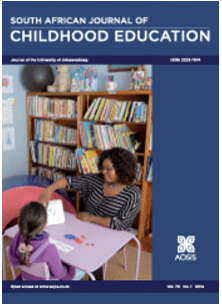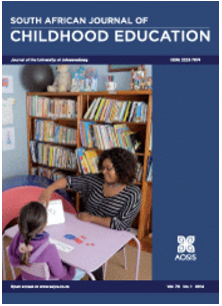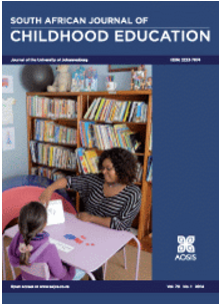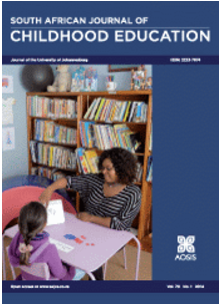Assisting Foundation Phase teachers to implement inclusive education in the classroom: a Participatory Action Learning and Action Research (PALAR) approach

Type
Thesis
Authors
Category
ECCE, Foundation
[ Browse Items ]
Publication Year
2015
Publisher
North West University, Potchefstroom, South Africa
URL
[ private ]
Pages
218 p.
Subject
Early childhood education, Primary education, Foundation Phase, Inclusive education, Teachers, Educators, Participatory action learning, Action research, PALAR design, Distance education, Advanced Certificate in Education, South Africa
Abstract
The study is a twofold journey of professional learning. Firstly, it endeavoured to engage Foundation Phase (FP) teachers in a participatory action learning and action research (PALAR) design, in order to adapt the study material of a distance Advanced Certificate in Education (ACE) programme in Learner Support and, concurrently, to develop a scholarship of teaching and learning in order to improve the implementation of inclusive education of a wider body of FP teachers. Secondly, it endeavoured to improve my own scholarship of teaching and learning in my academic practice as a teacher of inclusive education at a Higher Education Institution (HEI) through facilitation and participation in the PALAR design. The study is epistemologically embedded in a critical, transformative paradigm to generate data through open-ended questionnaires, reflective diaries, purposeful discussions and classroom observations. The qualitative research took place in two phases and four cycles. Phase 1 of the study was explorative by nature to determine how the FP teachers who were enrolled in the ACE programme conceptualise inclusive education as well as to understand the problems they face in practice on a daily basis regarding the implementation of inclusive education. Fifty FP teachers enrolled for an ACE in Learner Support took part in phase 1. Phase 2 occurred with eight participants, all FP teachers from the same school. The researcher and participants formed an action learning set. The action learning set worked in four iterative cycles. These cycles led us from a vision of how to improve an ACE in Learner Support programme from a predominantly theory-based content to include a more practical element by emphasising the application of the theoretical knowledge in order to enact a more inclusive classroom. Congruently, a scholarship of teaching and learning was developed. Since these transformations resulted in the adaptation of the study material of the ACE in Learner Support, it could have a positive impact on a wider body of in-service teachers enrolling for further studies in a similar programme. The experience of the action learning set made the participants aware of the value of collaboration as well as of their own critical reflection skills, with the aim to develop scholarship in teaching and learning for life-long learning and, consequently, to become better at the implementation of inclusive education. Limitations of the research were the small sample and the qualitative mode of data gathering, which limited the findings in the sense that it cannot necessarily be generalised to other contexts. A further initial challenge was for the participants to accept me as not their lecturer, but a participant in the action learning set. The limited literature on inclusive education within a South African context also served as a limitation in this research.
Number of Copies
1
| Library | Accession No | Call No | Copy No | Edition | Location | Availability |
|---|---|---|---|---|---|---|
| 1 | Potchefstroom, North West Province, South Africa | Yes |



